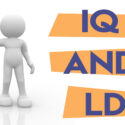The common misconception that most people have regarding people with learning difficulties (LD) is that they are inherently less intelligent and lazy. Ironically, people with LD is not as perceived but rather that they learn at a slower pace and in a different manner from the rest. In this article, we are going to clarify what exactly is a learning difficulty and how having a learning difficulty is not a measure of one’s intelligence.
Learning difficulties is a term used to describe a condition that interferes with the ability of an individual to learn academic skills. People with learning difficulties normally have difficulty in reading, writing, speaking, language comprehension and problem solving. Learning difficulties often remain unnoticed until the individual starts attending school and portray repeated failures in his/her academic performance.
Although it is usually mistaken as intellectual fault, having a learning disability is not related to an individual’s intellectual capability. People with learning difficulties tend to score within the normal range of IQ functioning on an IQ test.
What is an IQ test?
Most may know what an IQ test is but do not have an in-depth understanding of it. Basically, IQ is a total score added up from different tests that are designed to assess the general intellectual ability of an individual. The most common test used worldwide is the Wechsler Intelligence Scale for Children (WISC) (Saklofske, Weiss, Beal, & Coalson, 2003). The Wechsler tests have long been regarded by the scientific community as the go-to test in IQ testing (Meyer & Weaver, 2005).
The WISC test is organized into five components – Verbal Comprehension Index, Visual Spatial Index, Fluid Reasoning Index, Working Memory Index, and Processing Speed Index (Wechsler, 2014). These five components will then provide scores for Verbal IQ, Performance IQ and Full Scale IQ based on comparisons to the mean average score of their same-age peers (Wechsler, 2014). The test requires physical manipulation of objects in front of the psychologist who is conducting the test. As such, a legitimate IQ test cannot be taken online. Each component of the test starts off with easy tasks and progressively gets more difficult.
The WISC test is also used to measure cognitive abilities relevant to assessing and identifying specific learning difficulties such as dyslexia and dyscalculia (Kaplan & Saccuzzo, 2010), as well as a child’s cognitive development with respect to their chronological age (Wechsler, 2014).
In fact, though people with learning difficulties struggle with reading, writing, mathematics and comprehension, they often excel in different fields that rely on other skills such as analytical thinking, illustration and acting. Some notable people who have learning difficulties are Picasso, Albert Einstein and Walt Disney.
There are several types of classification for learning difficulties
- Dyslexia – difficulty in reading and language processing abilities
- Dyscalculia – difficulty in understanding and solving mathematical equations
- Dysgraphia – difficulty in handwriting skills i.e. in written expression
- Dyspraxia – difficulty in activities requiring coordination and movement
- Attention Deficit Hyperactivity Disorder (ADHD)
- Others – APD (Auditory processing disorder), SLPD (specific language processing disorder), Non-verbal learning difficulties, Language impairment
Hopefully, this article has clarified some doubts and misconceptions that people might have about learning difficulties and intelligence. Having a learning difficulty merely means that your brain processes information differently that resulted in a slower pace than the rest. They just require a longer time to arrive at the same understanding that we do whenever we encounter a problem.
Bibliography
Saklofske, D., Weiss, L., Beal, A. L., & Coalson, D. (2003). Chapter 1: The Wechsler Scales for Assessing Children’s Intelligence: Past to Present. Academic Press, 3-21.
Meyer, R. G., & Weaver, C. M. (2005). Law and Mental Health: A Case-Based Approach. New York: Guilford Press.
Wechsler, D. (2014). Wechsler intelligence scale for children – fifth edition. Bloomington, MN: Pearson.
Kaplan, R. M., & Saccuzzo, D. P. (2010). The Measurement and Appraisal of Adult Intelligence. Psychological Testing: Principles, Applications, and Issues (Seventh ed.), 262.

No responses yet